Written and presented by Lucetta Roberts on Tuesday, June 2, 1891 for an Oratorical Contest at the Christian Church, Arcadia, IN. She received thirteen congratulatory flower bouquets for her performance.
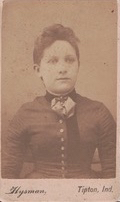
There is scarcely a position in life where we cannot be of use to our fellowmen, if we will
only exert ourselves. There are none so miserable, so fallen in wretchedness, but what are
deserving of help. Their course of action may have been such that we find much to condemn;
But, they are human beings, they are (our brethren) possessed of an immortal soul, and it is
nothing less than our duty to help them and bestow on them what succor we can.
In times of regret and sudden danger, such as conflagrations, shipwrecks, and lamentable accidents, we admire and applaud those heroes who risk even their own lives to save others. At such times heroism often appears where least expected. The innate nobility of man will show itself in such crises. How much we admire those men and women, whose object in life seems to be to do good.
They move through life as the music of a band moves in the air, giving pleasures far and near, to all
that will listen. Nothing is more odious than that selfishness which wraps a man up in himself and his
own concerns and prevents his being moved by either the joys or sorrows of others. For kindness
will go farther and yield more happiness in this world, than all the haughtiness and asperity we can
possibly assume.
Once, a lady on coming in contact with a poor old man who was breaking stone by
the roadside, was very much touched with sympathy for him; seeing that he was in very poor
circumstances, she took a shilling from her purse and gave it to him, which must have indeed
lightened the poor man’s heart. How often can we, like the lady, lighten the hearts of those
around us if we are only willing to do a small act of kindness. How much easier too, is it to act
kindly and naturally to our fellowmen, then to effect a rude and boisterous demeanor which is
sure not to make only others despise us, but on reflection, to cause us to despise ourselves.
It is the kind words that help; and the individual who has these at hand is sure to be a helper to
others along the highway of life, along which so many are travelers.
A kind word to the unfortunate may fall like drops of rain upon the drooping flowers. A tear dropped
in the silence of a sick chamber often rings in heaven with a sound which cannot be produced by any
earthly orchestra. A man with a pleasant disposition finds friends, where people of a contrary
nature see only enemies. We must be kind to our friends in order to keep them, and to our
enemies in order to win them. Good nature is one of the sweetest gifts of
Providence. Like the pure sunshine, it gladdens, enlivens, and cheers, in the midst
of anger and revenge. It is good nature that elevates, purifies, and exalts; but the
reverse that degrades, debases, and destroys. Who will not strive to possess this
glorious trait of character?
We are indeed social beings. Old Northern tales say that in olden times, long, long ago,
when night and day were young and foolish, they chased each other around the world in a state
of angry disdain; each thinking that he alone was doing good, and that therefore the other,
so totally unlike himself, in all respects, must be doing harm, and must be got rid of altogether,
if possible.
Unlike this fabled contest we are dependent upon each other. In all the joys and conflicts of
life we long for the presence and sympathy of friends. We feel as if we must tell somebody the
crushing grief or exultant joy with which our hearts are filled. Good deeds will shine forth as the
stars of heaven. One who is really anxious to be of service to his fellowman, and to make his life
glorious with good deeds, need not wait for great occasions in which to distinguish himself.
We can all be benevolent. The benevolent man is the truly happy man. God loves and blesses those
whose disposition and conduct resemble His own.
In every earthly dwelling there is someone to suffer pain; in every human family there is
someone over whom the pale shadow of death has passed. To all, such sympathy may be
extended. A good deed is never lost.
He who shows courtesy, reaps friendship; he who plants kindness, gathers love. And, as the
mind becomes more generous, more active in doing good, all the sources of felicity will
multiply around it. It will have peace and dignity within, and the smiles of infinite pleasure
will beam upon it with inexpressible glory.
The lowly and humble may frequently do more in their limited sphere than the gifted.
But all can accomplish much if we will only do the little acts of kindness for which
opportunity is given. We should be charitable to the extent of our ability. Charity
is placed at the head of all Christian virtues. It is the foundation of all Christian graces.
Without it, religion is like a body without a soul; our friendship a mere shadow. Let us
therefore be kind to the unfortunate, dry the mourner’s tears, so that memory
will have a store of sweet thoughts to live upon when the reality shall no longer
stand before us. The everlasting hills shall crumble to dust; but a good act
will never be forgotten. The moon and stars shall grow dim and the sun shall roll
from the heavens; but the spirit of the truly charitable man or woman, will grow
brighter, while God himself shall live.
Life is made up of little things. Were it made up of large things, I fear that
there are some who would not have the ability to make even a single show as to
being a helper to others.
Some lives that make the world so sweet, are hidden like a humble flower;
And we often times pass them by, nor dream ‘tis their fragrance fills the air and
cheers and comforts us hour by hour.
Let us not be weary in well-doing. We should try to do all the good we can, to
all the people we can. We live in a world which is full of misery and ignorance,
and the plain duty of all is to try and make that part, which we can influence,
somewhat less miserable and somewhat less ignorant than it was before we entered it.
It is worth a lifetime of exertion to rescue just one from such a fate. For duty,
like truth, is ever present and only needs the iron lid of the mind’s eye to be
lifted in order to behold it.
Therefore, where e’er a duty waits for thee, with sober judgment view it.
Do not idly wish it done; begin at once and do it. For he who does the best
his circumstance allows, does well, acts nobly; Angels could do no more.
only exert ourselves. There are none so miserable, so fallen in wretchedness, but what are
deserving of help. Their course of action may have been such that we find much to condemn;
But, they are human beings, they are (our brethren) possessed of an immortal soul, and it is
nothing less than our duty to help them and bestow on them what succor we can.
In times of regret and sudden danger, such as conflagrations, shipwrecks, and lamentable accidents, we admire and applaud those heroes who risk even their own lives to save others. At such times heroism often appears where least expected. The innate nobility of man will show itself in such crises. How much we admire those men and women, whose object in life seems to be to do good.
They move through life as the music of a band moves in the air, giving pleasures far and near, to all
that will listen. Nothing is more odious than that selfishness which wraps a man up in himself and his
own concerns and prevents his being moved by either the joys or sorrows of others. For kindness
will go farther and yield more happiness in this world, than all the haughtiness and asperity we can
possibly assume.
Once, a lady on coming in contact with a poor old man who was breaking stone by
the roadside, was very much touched with sympathy for him; seeing that he was in very poor
circumstances, she took a shilling from her purse and gave it to him, which must have indeed
lightened the poor man’s heart. How often can we, like the lady, lighten the hearts of those
around us if we are only willing to do a small act of kindness. How much easier too, is it to act
kindly and naturally to our fellowmen, then to effect a rude and boisterous demeanor which is
sure not to make only others despise us, but on reflection, to cause us to despise ourselves.
It is the kind words that help; and the individual who has these at hand is sure to be a helper to
others along the highway of life, along which so many are travelers.
A kind word to the unfortunate may fall like drops of rain upon the drooping flowers. A tear dropped
in the silence of a sick chamber often rings in heaven with a sound which cannot be produced by any
earthly orchestra. A man with a pleasant disposition finds friends, where people of a contrary
nature see only enemies. We must be kind to our friends in order to keep them, and to our
enemies in order to win them. Good nature is one of the sweetest gifts of
Providence. Like the pure sunshine, it gladdens, enlivens, and cheers, in the midst
of anger and revenge. It is good nature that elevates, purifies, and exalts; but the
reverse that degrades, debases, and destroys. Who will not strive to possess this
glorious trait of character?
We are indeed social beings. Old Northern tales say that in olden times, long, long ago,
when night and day were young and foolish, they chased each other around the world in a state
of angry disdain; each thinking that he alone was doing good, and that therefore the other,
so totally unlike himself, in all respects, must be doing harm, and must be got rid of altogether,
if possible.
Unlike this fabled contest we are dependent upon each other. In all the joys and conflicts of
life we long for the presence and sympathy of friends. We feel as if we must tell somebody the
crushing grief or exultant joy with which our hearts are filled. Good deeds will shine forth as the
stars of heaven. One who is really anxious to be of service to his fellowman, and to make his life
glorious with good deeds, need not wait for great occasions in which to distinguish himself.
We can all be benevolent. The benevolent man is the truly happy man. God loves and blesses those
whose disposition and conduct resemble His own.
In every earthly dwelling there is someone to suffer pain; in every human family there is
someone over whom the pale shadow of death has passed. To all, such sympathy may be
extended. A good deed is never lost.
He who shows courtesy, reaps friendship; he who plants kindness, gathers love. And, as the
mind becomes more generous, more active in doing good, all the sources of felicity will
multiply around it. It will have peace and dignity within, and the smiles of infinite pleasure
will beam upon it with inexpressible glory.
The lowly and humble may frequently do more in their limited sphere than the gifted.
But all can accomplish much if we will only do the little acts of kindness for which
opportunity is given. We should be charitable to the extent of our ability. Charity
is placed at the head of all Christian virtues. It is the foundation of all Christian graces.
Without it, religion is like a body without a soul; our friendship a mere shadow. Let us
therefore be kind to the unfortunate, dry the mourner’s tears, so that memory
will have a store of sweet thoughts to live upon when the reality shall no longer
stand before us. The everlasting hills shall crumble to dust; but a good act
will never be forgotten. The moon and stars shall grow dim and the sun shall roll
from the heavens; but the spirit of the truly charitable man or woman, will grow
brighter, while God himself shall live.
Life is made up of little things. Were it made up of large things, I fear that
there are some who would not have the ability to make even a single show as to
being a helper to others.
Some lives that make the world so sweet, are hidden like a humble flower;
And we often times pass them by, nor dream ‘tis their fragrance fills the air and
cheers and comforts us hour by hour.
Let us not be weary in well-doing. We should try to do all the good we can, to
all the people we can. We live in a world which is full of misery and ignorance,
and the plain duty of all is to try and make that part, which we can influence,
somewhat less miserable and somewhat less ignorant than it was before we entered it.
It is worth a lifetime of exertion to rescue just one from such a fate. For duty,
like truth, is ever present and only needs the iron lid of the mind’s eye to be
lifted in order to behold it.
Therefore, where e’er a duty waits for thee, with sober judgment view it.
Do not idly wish it done; begin at once and do it. For he who does the best
his circumstance allows, does well, acts nobly; Angels could do no more.

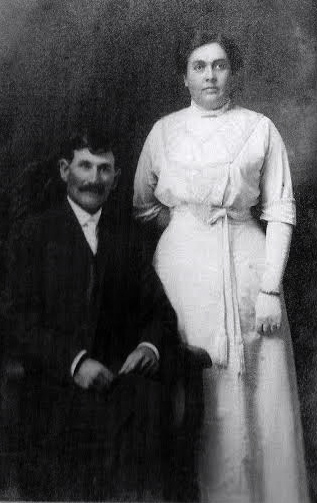
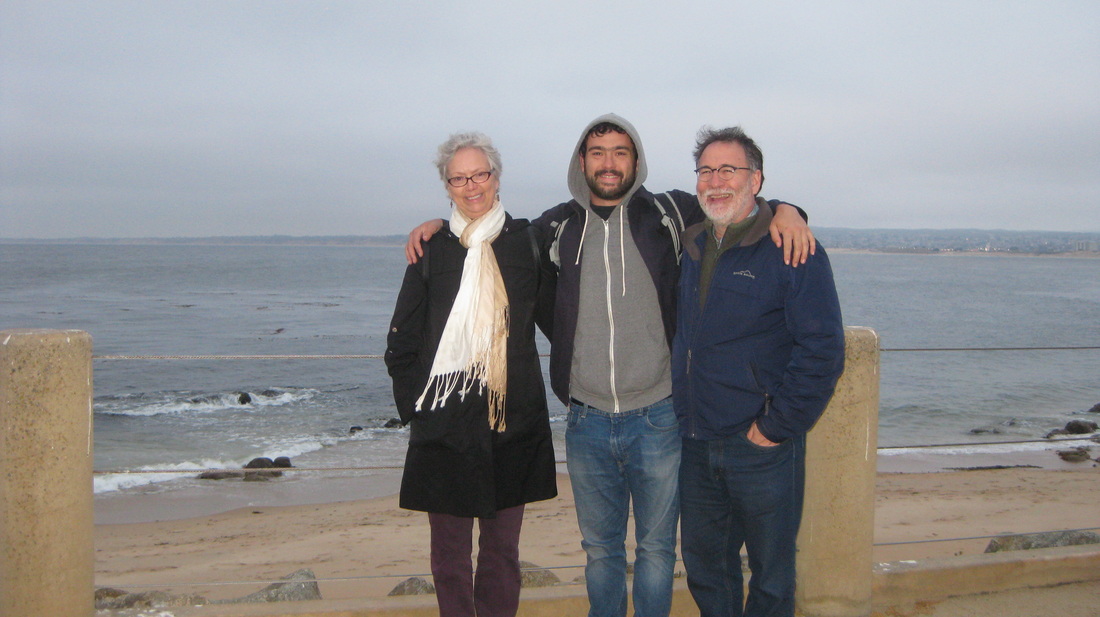
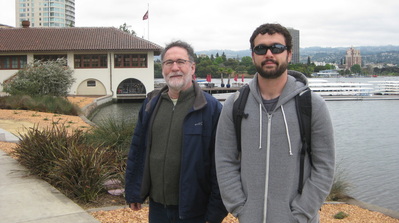
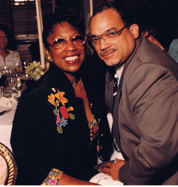
 RSS Feed
RSS Feed